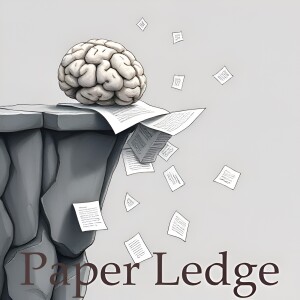

Computation and Language - MetaFaith Faithful Natural Language Uncertainty Expression in LLMs
Hey PaperLedge crew, Ernis here, ready to dive into some fascinating research that touches on something we all deal with: trusting what we hear, especially from AI.
Today, we're talking about Large Language Models – think of them as super-smart chatbots like ChatGPT or Bard. They can write poems, answer questions, and even generate code. But here's the thing: how much can we really trust them?
This paper tackles a crucial issue: do these AI models accurately communicate how certain they are about the information they’re giving us? Imagine a friend who confidently tells you something, but they're actually just guessing. That's not great, right? It's even worse when it comes from an AI because we might rely on it for important decisions.
The researchers call this "faithful confidence calibration." Basically, it's about making sure that when an LLM is uncertain, it sounds uncertain. It shouldn’t be spitting out answers with complete confidence if it's really just making an educated guess.
Think of it like this: if you ask an LLM about the capital of Uzbekistan, and it's not 100% sure, it should say something like, "I think it's Tashkent, but I'm not completely positive." It shouldn't declare "The capital of Uzbekistan IS Tashkent!" with unwavering certainty if it's pulling information from a potentially unreliable source.
What the researchers found is a bit alarming: LLMs are generally terrible at this! They often sound very confident even when they're wrong. This can lead us to over-rely on them and erode our trust over time. Existing attempts to fix this problem, such as tweaking the prompts or focusing solely on factual accuracy, haven't been very effective. Some even make the problem worse!
But don't despair, crew! The researchers didn't just point out the problem; they also came up with a solution. They developed a new prompting technique called MetaFaith. It's inspired by human metacognition - our ability to think about our own thinking.
MetaFaith essentially encourages the LLM to reflect on how confident it should be before answering. It's like asking the AI to double-check its sources and consider its own limitations before opening its digital mouth.
The results were impressive! MetaFaith significantly improved how faithfully the LLMs communicated their uncertainty. In fact, human judges preferred the MetaFaith-generated responses a whopping 83% of the time! That’s a huge win for honesty and reliability in AI.
So, why does all of this matter?
- For developers: It highlights the need to prioritize faithful confidence calibration when building and deploying LLMs.
- For everyday users: It reminds us to be critical of the information we get from AI and to be aware of its potential to be overconfident.
- For researchers: It opens up new avenues for exploring how to make AI more trustworthy and reliable.
Now, here are a couple of questions that popped into my head while reading this:
- If LLMs are so bad at assessing their own confidence, does this mean they're also bad at assessing the reliability of their sources?
- Could techniques like MetaFaith be used to improve other aspects of AI trustworthiness, such as reducing bias or increasing transparency?
This paper really underscores the importance of critical thinking, not just for humans, but also for the AI we're increasingly relying on. It's a call to action to make sure these powerful tools are not just intelligent, but also honest and reliable. What do you all think? Let me know your thoughts in the comments below!
Credit to Paper authors: Gabrielle Kaili-May Liu, Gal Yona, Avi Caciularu, Idan Szpektor, Tim G. J. Rudner, Arman Cohan
More Episodes
All Episodes>>Create Your Podcast In Minutes
- Full-featured podcast site
- Unlimited storage and bandwidth
- Comprehensive podcast stats
- Distribute to Apple Podcasts, Spotify, and more
- Make money with your podcast












